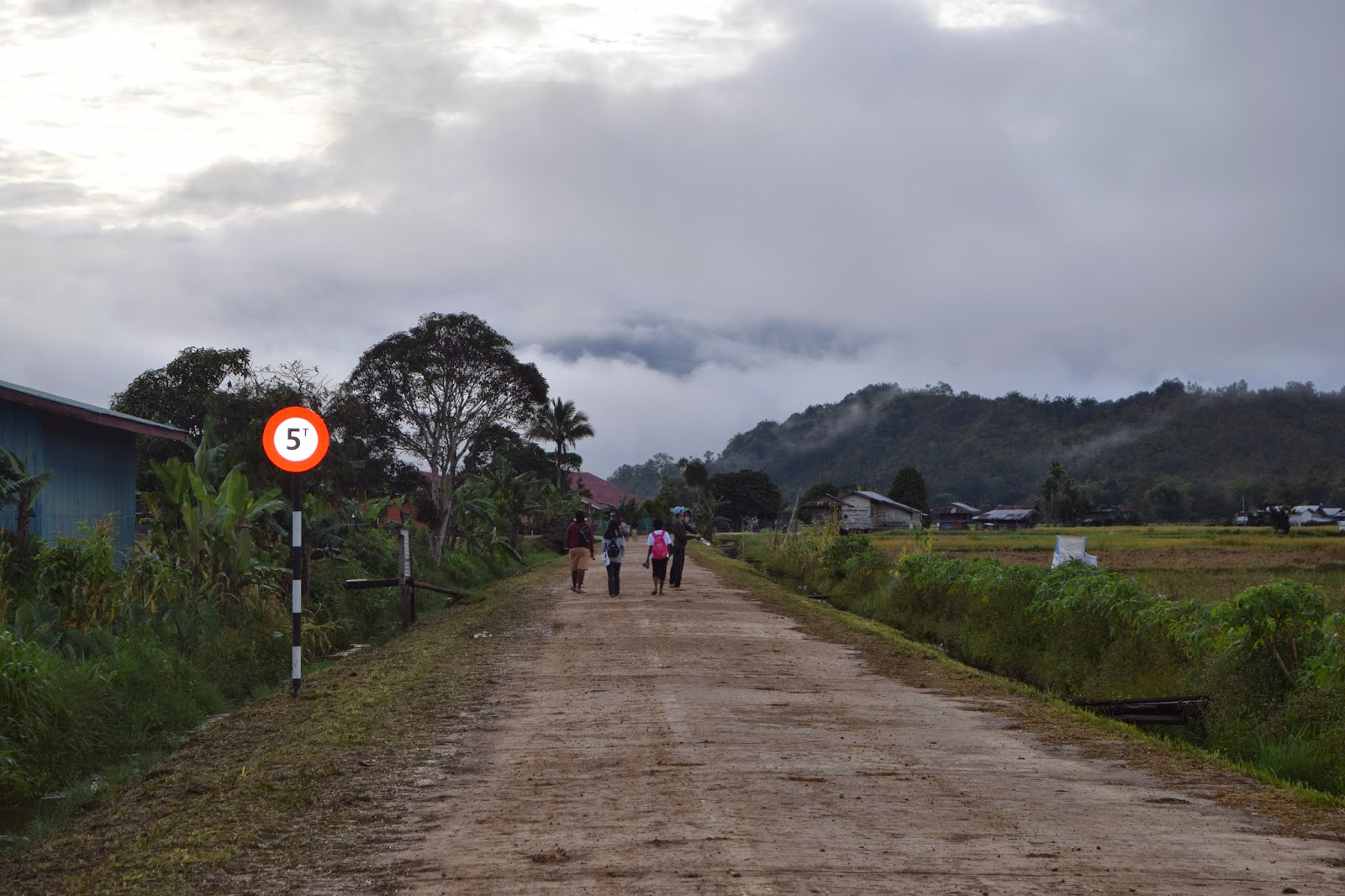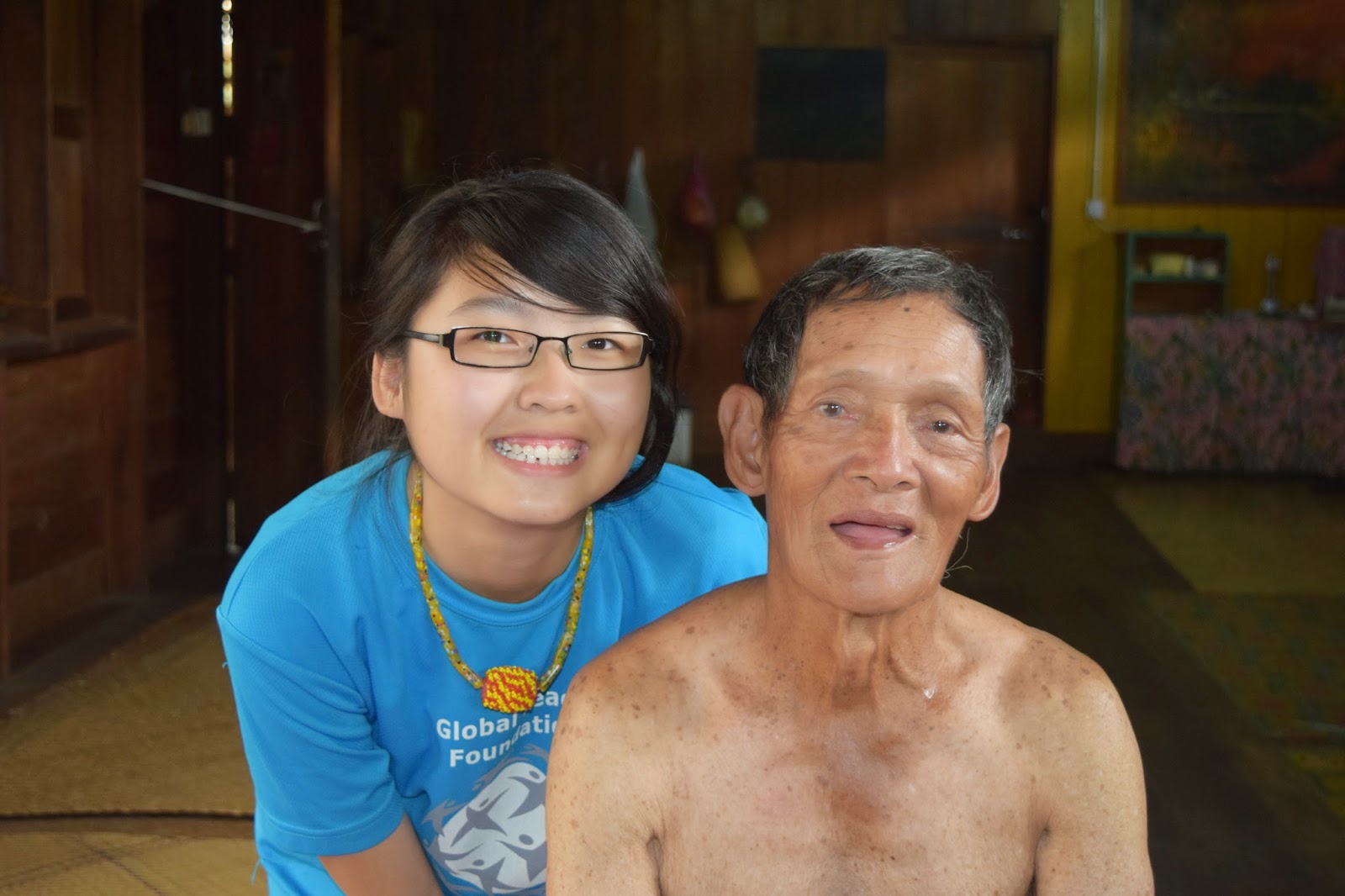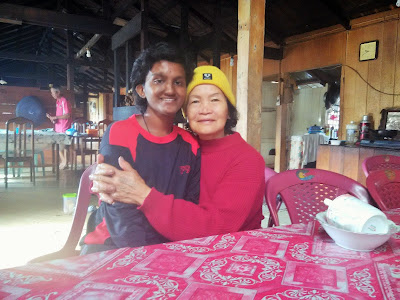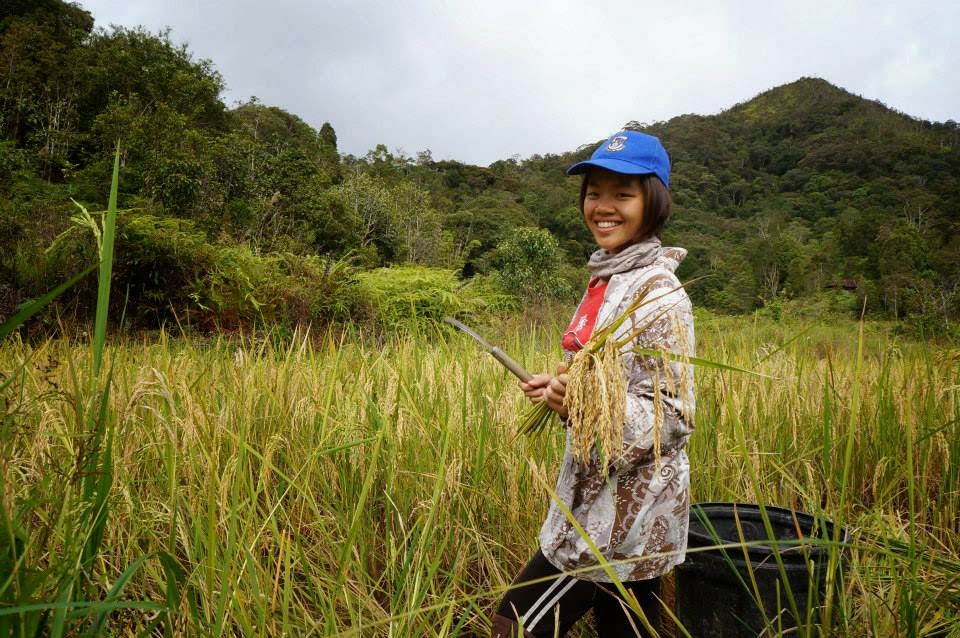Tepu' [te-puk]
Family. A greeting commonly used for the elders; someone who loved me very much and only wanted the best for me; someone who fed me endless Nuba Layas. My first and favourite Kelabit word.
Before anything, let me first introduce the lady I was assigned to for 3 weeks - the very grandmother-ly Tepuq Do Ayu!
When I first knew my pairing, I was told that she's a very shy and reserved person. Perhaps we were paired because I'm generally good with silences and minimal interactions. However, she surprised me with little things like simple conversations with her foreign neighbours - yeah there's this English + Portuguese couple living in Bario yo - and also attempting English during meal times. :)
(No worries, I was good by the next day. Just a slight work culture shock was all.)
On the left is our first ever picture together, taken during one of our breaks.
"Tepuq tau tak ambil gambar sendiri tu apa?"
"Tak tau."
"Kita panggil ni Selfie! Haha."
Translation:
"Tepuq, do you know what they call it when you take pictures of yourself?
"I don't know."
"We call it a selfie! Haha."
Yes, I taught her what a selfie was. (Hey, it was Oxford's Word of the Year 2013, okay.) She probably doesn't remember this word anymore, but it was funny trying to get her to pronounce it!
I also have fond memories of my last Monday with Tepuq.
That morning, I walked the usual rocky yet muddy path to Tepuq's house in the Arur Dalan village.
What made me really happy was when I entered Tepuq's longhouse, I was greeted by everyone in the family, including Tepuq's grandsons who seemed to always disappear whenever I'm around haha. I usually hung out with members of the family separately, individually, so this was a very delightful change.
 |
| I truly enjoyed breakfast with everyone! |
I still remember what was served that day, because I remember eating very happily.
We had fish, rice cooked in fish stomach, midin (fern) and wild boar, with padi hitam (black paddy) nuba laya.
As always I would reassure Tepuq in between spoonfuls, "sangat sedap!" (very yummy!) because I eat really slow, heh. More on that in the next post.
After breakfast, Tepuq disappeared into her room and came out with my kaboq, which is a pretty huge deal! I was really surprised by her present, and I also felt extremely blessed because she told me she'd decorated the beads herself.
 |
| Taken during my backyard adventure: Kaboq is a traditional Kelabit necklace. |
This picture doesn't do the details on this Kaboq justice. Up close, you can see the little painted-on patterns of the beads.
I love this necklace very much- it fits me because it's very attention-seeking. :p
Later we (meaning me, Tepuq, and her husband whom I call Tok) went to the paddy field to harvest as usual, but that day they'd let me take my break earlier since we had a beauty session - a special initiative by Project WHEE! - for Arur Dalan in the evening. I doodled while they finished up some work amongst the goldens; I even got to explore their backyard for the first time, alone!
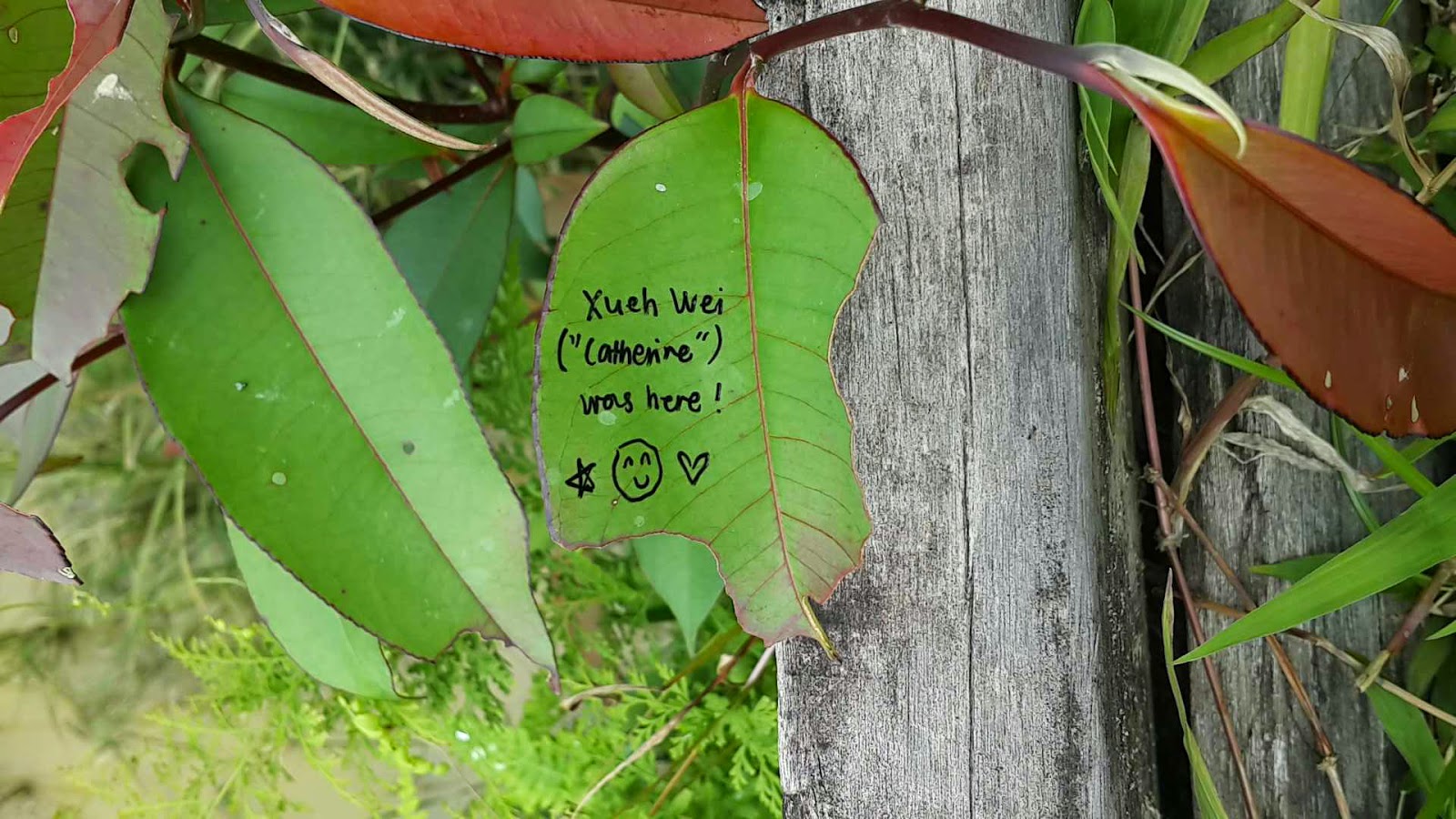 |
| Xueh Wei Cathrine - your local leaf doodler! |
 |
| Me painting Sina Supang's nails. (Does anyone notice the pen in my hair?) |
 |
| After Beauty Session: I love the Arur Dalan people. <3 |
I miss my favourite simplicity, yes I do.
# Xueh Wei Cathrine #
















